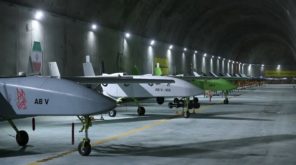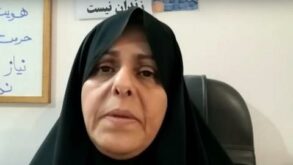Al-Monitor – Government officials and investors all agree that Iran needs to improve its business climate to attract the needed investment for job creation. One of the phenomena that can help ease the process of doing business is the country’s customs organization.
Incidentally, Iran’s current minister of economic affairs and finance, Massoud Karbassian, was promoted from his previous position as head of the Islamic Republic of Iran Customs Administration (IRICA). During his confirmation debate in parliament, there was broad agreement that in his four-year term in that position he managed to improve customs regulations as an important step in fighting corruption in the Iranian economy.
Many observers agree that, similar to other state organizations, Iran’s customs dealings have suffered as a result of ambiguous laws, lack of transparency, institutional inefficiency and petty corruption.
At the same time, ad hoc regulations that have been introduced over the decades of war, reconstruction and sanctions have created conditions that can best be described as a fragmented system of trade in which goods can be imported through multiple channels, including actual customs points, free trade zones, special economic zones, port regulations, border markets, families living in border regions and cross-border passengers. So one of the first tasks in the modernization of the country’s customs organization has been defining the legal and organizational processes to create the authority for the actual customs organization to supervise all these entry points.
In 2013, when Karbassian took the helm of IRICA, he inherited the plan to implement of a so-called comprehensive customs system that set out to automate processes at all customs points. However, many experts opined that the new system only mechanized an outdated system without introducing major improvements. In 2016, Karbassian said, “The comprehensive customs system is like a ship that is moving and being repaired at the same time.”
However, Karbassian also identified an opportunity in the new approach. In his assessment of the new system that was expanded in line with the shift toward online government processes, Karbassian said, “The main utility of technology is that it works against corruption. It increases transparency.” Forgeries have been a massive problem in the customs operations, to the detriment of the government and the economy. Incidentally, within the framework of Iran’s so-called resistance economy, Supreme Leader Ayatollah Ali Khamenei had also commented on the role of customs reforms in protecting the domestic industry.
Addressing the diverse shortcomings of customs processes in January 2017, the government presented a customs law amendment, a blueprint for reforms, to the parliament. The key changes to the original law included:
- Introduction of e-government and paperless processes, including electronic communication with the customs organizations of trading partners to limit opportunities for forgery.
- Clarifying the institutional overlaps between IRICA and other institutions, such as free trade zone authorities.
- Adoption of customs facilities designed to promote trade in line with the provisions of the World Trade Organization.
- Application of the tools that have been proposed by the World Customs Organization known as international supply chain management, which addresses such issues as cross-border criminal activity, terrorism and money laundering.
- Alignment of Iranian regulations with the provisions of the Kyoto Convention, which Iran has signed.
One of the other improvements has been the introduction of legal provisions allowing only professional and licensed brokers to release goods from customs. This provision will allow the state to promote e-government practices and focus on training for licensed brokers.
The law is still stuck in the parliamentary bureaucracy, but will likely be passed. Once it is law, the government will have to make an effort to implement the changes. While the above reforms are all essential to the modernization process, they also require infrastructure and trained staff — two areas where Iranian state institutions have showed major weaknesses in the past. Deficiencies in infrastructure are sometimes a function of a lack of investment and in other cases caused by the lack of facilities such as internet service in remote areas.
Furthermore, despite the existing dialogue between the customs organization and business associations, there is still room for greater interaction between the private sector and the state organizations in charge of external trade. One of the key bottlenecks is that so-called commercial licenses are still issued in an old-fashioned way. Consequently, imports and exports have to enlist another entity with such a license, which in turn opens the door to corruption and a lack of accountability, as corrupt networks can carry out their transactions under other people’s licenses without leaving a trace in the customs database.
Another challenge in this field is the unreliability in the application of customs tariffs. This variation is partly caused by changing laws and regulations and partly by the diverse interpretations by customs officials. In these decisions, state institutions are usually focused on achieving state goals (such as increasing revenues from customs duties or responding to the lobbying efforts of one power center) as opposed to understanding any damaging effects on different economic sectors.
In addition, Iranian producers have entered new sectors, presenting challenges to the customs authorities historically focused on the exportation of traditional commodities. One example is the exportation of software and consulting services, which are not covered by any of the Iranian regulations. Furthermore, no authority feels responsible for transit activities through Iran, and while this sector is growing at a fast pace, there are still many ambiguities in the process.
Though many shortcomings remain, customs processes have improved. In fact, at the invitation of IRICA President Foroud Asgari, WCO Secretary-General Kunio Mikuriya visited Tehran last month and made very positive comments about the progress achieved in Iran’s customs reforms.
It is evident that appropriate reforms and measures will reduce not only the scope for corrupt dealings, but also smuggling activities by offering a transparent process for official import-export activities. Reforming the customs processes can also help the government generate much-needed revenues at a juncture where the dependency on oil export proceeds is being reduced. However, much more will be needed beyond the passing of the customs law amendment.
is an economist and a managing partner at Atieh International, a Vienna-based international strategic consulting firm.
 Shabtabnews In this dark night, I have lost my way – Arise from a corner, oh you the star of guidance.
Shabtabnews In this dark night, I have lost my way – Arise from a corner, oh you the star of guidance.



